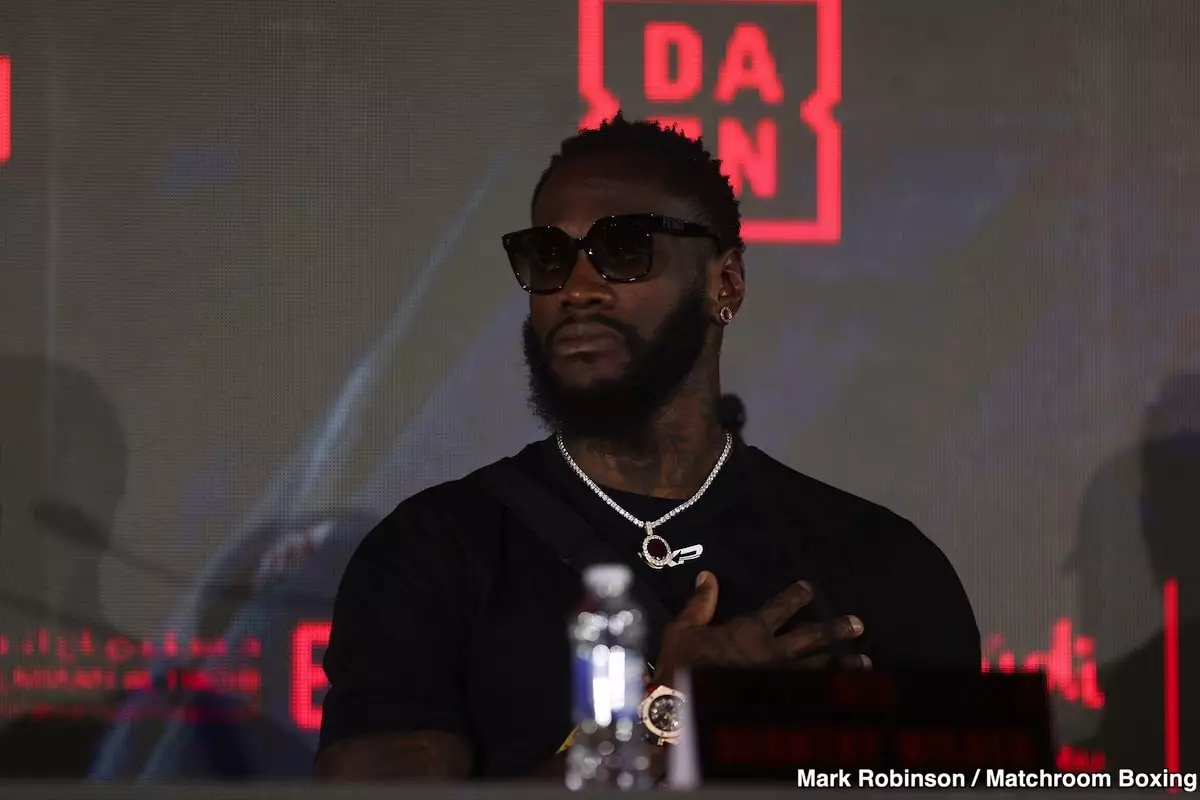Deontay Wilder, once celebrated as the WBC heavyweight champion, now finds himself at a critical juncture in his boxing career. On the verge of an April bout against Stephan Shaw, to be presented by BLK Prime PPV in Atlanta, Georgia, Wilder’s record of 43 wins, 4 losses, and 1 draw (with 42 knockouts) speaks volumes of his former glory. However, recent performances portray a stark contrast, as he currently holds a disheartening record of 1-4 in his last five fights. Delving deeper, we see a fighter who is not only grappling with physical challenges but also mental barriers that threaten to overshadow his legacy.
Fans and critics alike have grown skeptical of Wilder’s abilities, viewing him as a shell of his former self—reduced in stature within the heavyweight division. This expectation weighs heavily on his shoulders, coupled with the reality that he shares this precarious space with contemporaries like Devin Haney, who also face dwindling visibility in the sport. Wilder’s upcoming clash with Shaw (20 wins, 2 losses, 15 KOs) presents an opportunity for the 39-year-old fighter to reclaim some of his former prowess. Yet, the question looms: can he rediscover the explosive power that once defined his career?
Wilder’s notable punches—such as the impactful shots he landed on Zhilei Zhang—serve as reminders of his potential. However, his recent outings reveal a reluctance to engage, suggesting an increasing fear of vulnerability in the ring. This anxiety has become evident in his strategy, as Wilder often hesitates to let his hands fly. In contrast, Shaw, a younger and more aggressive opponent at 32, presents a unique challenge. Standing at 6’4″, he possesses both size and punching power, making him a formidable contender. His willingness to engage in a fight without holding back could spell disaster for Wilder if he does not adjust his approach.
Historically, fighters have performed remarkably when the stakes are high—Wilder’s tenure against Tyson Fury serves as a case in point. What seemed like advantageous matchups turned sour due to Wilder’s reluctance to engage fully and capitalize on his strengths. If history is any indicator, falling short against Shaw would likely mark the final chapter of Wilder’s professional life in the ring. His financial stability affords him the choice to walk away rather than endure the indignity of further losses against lesser opponents.
For Wilder, the fight against Shaw is more than a battle for a win; it represents a fight to reclaim his identity in a sport he once dominated. This pivotal moment is not merely about physical display but also a deeper psychological shift. The outcome could determine whether Wilder steps back into the spotlight or succumbs to the shadows of a once-brilliant career. As fans, we can only hope to witness a revitalized athlete willing to risk it all in the pursuit of redemption, sparking a resurgence in the heavyweight division.

